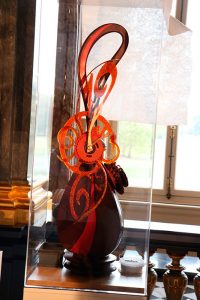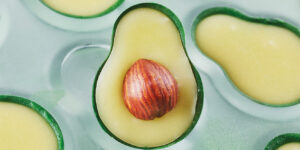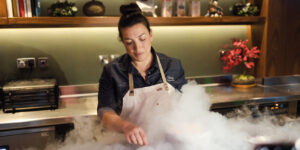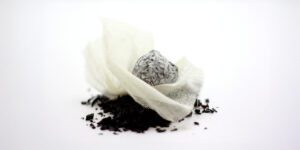Categories Pastry Chef Articles
Sébastien Trudelle: ‘My preparation was very complicated. I tried to do things I did not know how to do’
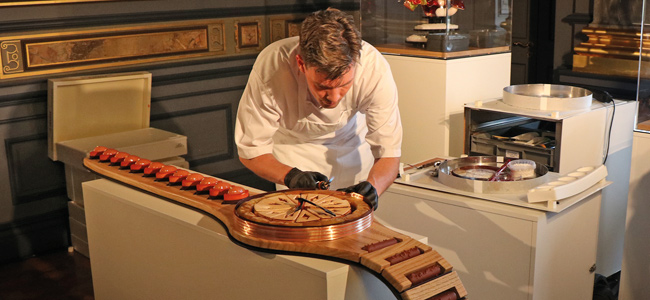
Last May, Sébastien Trudelle got the MOF title along with four other pastry chefs. Born in 1982, his professional career has been full of professional and competitive experiences, such as the two years he spent with Frank Fresson in Metz or the fifth place he earned in the 2009 World Chocolate Masters. He currently directs Smores chocolate and pastry shop in the Dutch town of Meerssen. Closely linked to the world of chocolate, his decisive commitment to creativity and highly advanced technical work stand out. His showcase for the MOF final is a clear reflection of that personality.
In so good # 21, we talked to Trudelle about how he prepared for the MOF and what his future plans were.
When did you decide to become a pâtissier?
My mother was a pastry chef and she passed on that passion on to me when I was very young. Even then I knew I wanted to be a pastry chef.
When did you decide to go all in and fight for the MOF title?
I had been wanting to participate in the MOF for years. But I had to be patient and wait until I was mature enough at the professional level.
Preparing for this contest implies great sacrifices. Which sacrifices would you highlight? What do you think is essential to face this hard preparation period successfully?
The sacrifice, indeed, is very great to face the preparation successfully. It implies that you will have very little time for your family, because you have to concentrate on the essentials. At the level of preparation, I think it is important to find a balance, because every detail is essential. And finding it, is precisely the most difficult thing.
The sacrifice, indeed, is very great to face the preparation successfully. It implies that you will have very little time for your family, because you have to concentrate on the essentials
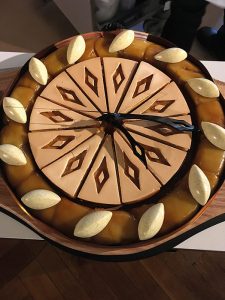
Tell us your experience preparing for the MOF: how much time did you spend? What was a key factor during your preparation?
My preparation was complicated, very complicated. I tried to do things I did not know how to do. I always wanted to go too far, and that did not make me move forward but, on the contrary, it discouraged me. After listening to many tips from my friends and my team, I wagered to focus and do what I liked and what I identified with. I understood that it was fundamental to be oneself. After that click, everything flowed, because I began to enjoy my preparation. The only thing was that the click happened late, and in the end I only had time to do two full sessions, and the second of them I finished on Thursday before leaving for the final.
How did you live, emotionally and psychologically, through the days of competition?
There were three days in which we had to be completely concentrated, rigorous and serene. With your training you gain confidence, but you do not protect yourself from those little technical problems, or any other type, that arise and that you have to manage in one way or another. It was exciting to see my buffet at the end with my family and friends, and to feel happy for the work that had been done. I did not care what result I got in the end, I already felt happy.
What would you highlight from the work you presented?
I think my entire buffet was quite consistent. I would say that the idea of the clock cake, with the working second hand, connected well with the theme and had an impact on the jury.
I think my entire buffet was quite consistent. I would say that the idea of the clock cake, with the working second hand, connected well with the theme and had an impact on the jury
What does this success mean to you?
It is, on the one hand, the recognition from my parents. And on the other hand, it means a rebirth.
What are your plans for the future?
My current challenge is to be a good father and take care of my daughters and my wife. And also to attend to my young team and the two stores we have in Meerssen and in Maastricht.
